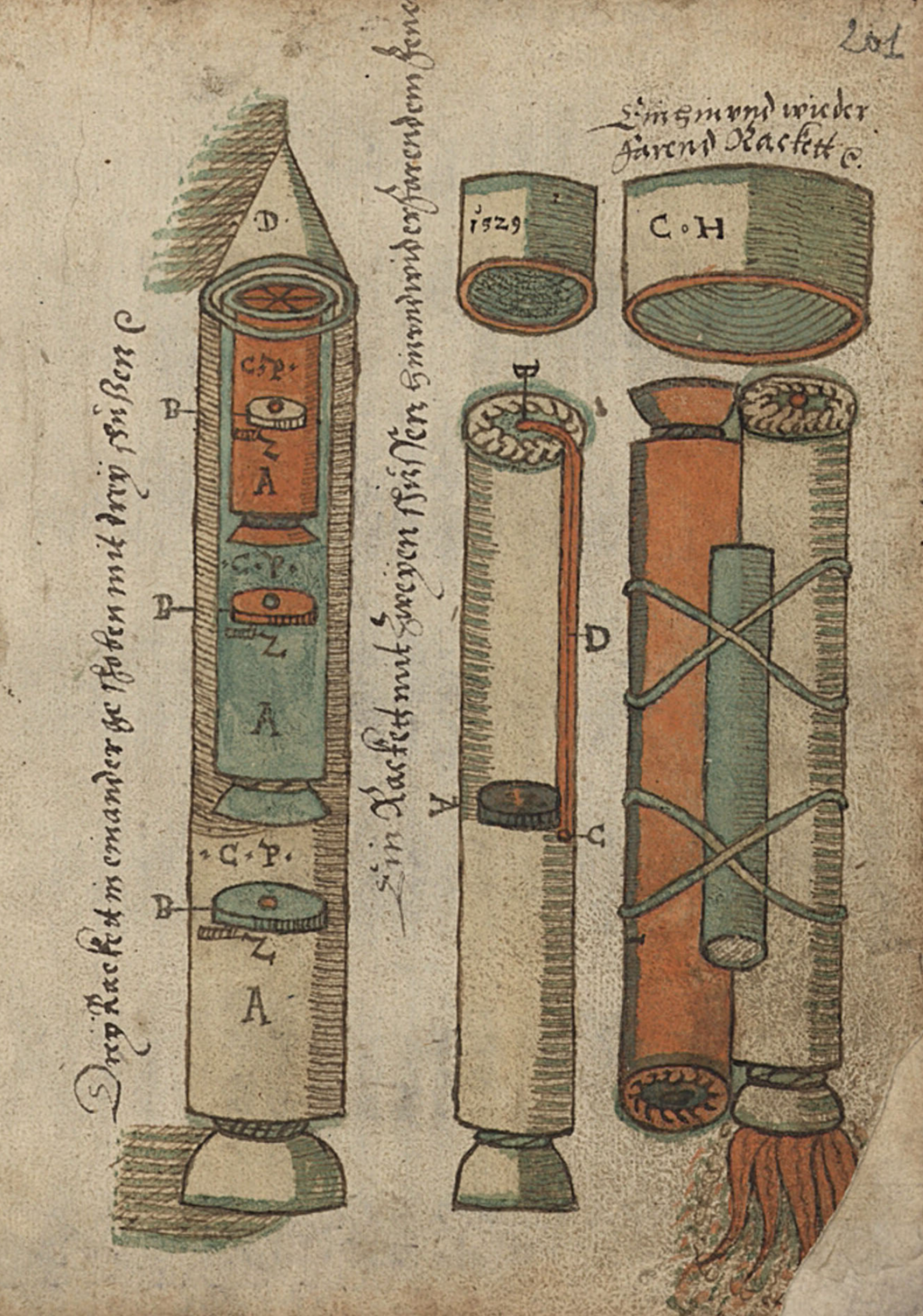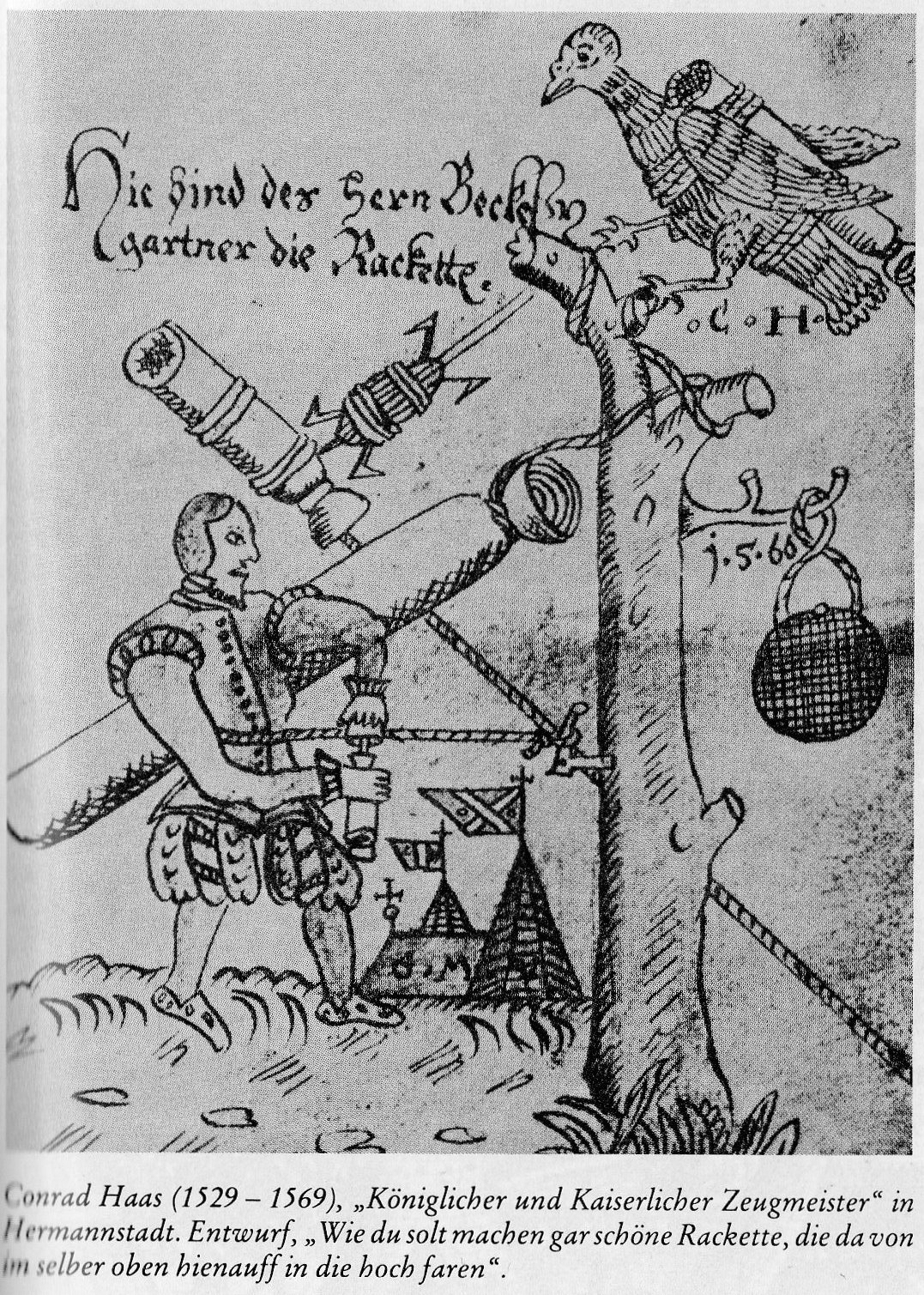

The Austrian military engineer Conrad Haas was a person forward of his time — certainly, about 400 years forward, considering that he was working on rockets aimed for outer area again within the mid-sixteenth century. Wantmuch less to say, he never actually managed to launch anyfactor into the higher atmosphere. However you need to give him credit for getting so far as he did with the concept, a considerin a position progress documented in his treatise “How You Should Make Fairly a Good Rocket That Can Travel Itself into the Heights,” which little doubt sounds wagerter within the original German. As Kaushik Patowary notes at Amusing Planet, its 450 pages are “crammed with drawings and technical knowledge on artillery, ballistics and detailed descriptions of multistage rockets.”
“Born in 1509 in Dornbach, now a part of Vienna, to a German family from Bavaria,” Haas moved to Transylvania, then a part of the Austrian Empire, early in his grownuphood. “In 1551, Haas was invited by Stephen Báthory, the grand prince of Transylvania, to Hermannstadt (now Sibiu, Romania), the place he turned the commander of the artillery barracks and a weapons engineer.”
It was on this professionalfessional capacity that he started his analysis into rocketry, which led him to discover the concept of “a cylindrical thrust chamber crammed with a powder professionalpellant, with a conical gap to professionalgressively improve the combustion space and consequently the thrust,” a transparent intellectual ancestor of the multi-stage design “nonetheless utilized in modern rockets.”

Haas’ is the earliest scientific work on rockets identified to have been belowtaken in Europe. And till honestly currently, it had been forobtainedten: solely in 1961 was his manuscript present in Sibiu’s public archives, which motivated Romania to say Haas as the primary rocket scientist. Although anachronistic, that designation does belowrating the far-sightedness of Haas’ worldview. So do the personal phrases he included in his chapter concerning the military use of rockets. “My recommendation is for extra peace and no warfare, leaving the rifles calmly in storage, so the bullet isn’t fired, the gunpowder isn’t burned or moist, so the prince retains his money, the arsenal master his life,” he wrote. However given what he will need to have realized whereas living in politically unstable European borderlands, he certainly belowstood, on some level, that it might be easier to get to the moon.
Related content:
Leonardo da Vinci Draws Designs of Future War Machines: Tanks, Machine Guns & More
Meet the Mysterious Genius Who Patented the UFO
Primarily based in Seoul, Colin Marshall writes and broadcasts on cities, language, and culture. His initiatives embrace the Substack newsletter Books on Cities and the e book The Statemuch less Metropolis: a Stroll via Twenty first-Century Los Angeles. Follow him on the social webwork formerly often called Twitter at @colinmarshall.